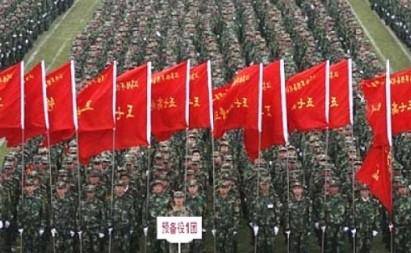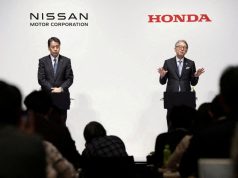(Editor’s note: In view of the presentations made by the Philippines before the UN arbitral tribunal on the country’s suit against China regarding the West Philippine Sea territorial dispute, key aspects of China’s history can help produce insights into the dynamics of the rising superpower’s possible future relations with its neighbors, specifically the Philippines. Author Cesar Polvorosa Jr. is a business school professor of economics, world geography, and international business management in Canada. He is also a published writer in economics, business, and literature.)
Read Part 1 of 4, ‘21st Century will be the Pacific Century’ here.
Read Part 3 of 4, ‘China following US capitalist footsteps and its various implications’ here.
While the path dependent approach suggests that countries would be heavily influenced by their histories in charting their future directions, countries can and do break new ground while incorporating elements of their past into their governance template. This is how progress is made. Thus, Japan had been a stable parliamentary democracy now for several decades while retaining distinct Japanese elements in their governance structures.
While China is making the transition to capitalism it retains strong SOEs (state-owned enterprises) while clearly reverting to its historical authoritarian norm in its governance mode. Then as now, there are factions competing to control the policy directions of China that echoed the struggle between the conservative inward looking Confucian scholars vs. the innovative outward looking eunuchs during the Ming dynasty period of Zheng He.
Again, the modernist vs. the traditionalist factions clashed as the Qing dynasty sputtered into its long decline especially as a strategy response to European incursions. More recently, it was the Mao’s vs. Deng’s factions that extended from the Cultural Revolution. Deng’s open policy eventually prevailed and spawned economic liberalization and the SEZs (Special Economic Zones).
Subsequently, as the country made its dizzying ascent during the past few decades the power struggle pitted the “doves” against the “hawks.” For a while, the doves had the upper hand and thus the focus on the soft power of the state. Now, as the economy and the military had made quantum leaps, the pendulum has clearly swung to the hardliners.
Chinese encroachments are treading on dangerous ground as they alienate smaller neighboring countries that traditionally would look to the Middle Kingdom for leadership. No country no matter how small or ineffectual would like to be cowered into submission. On the other hand, soft power would lead to the gradual and willing embrace of closer relationships that would be a win-win situation for all parties. But an overt and aggressive hegemon repels and would soon be confronted by an alliance that would seek to protect their individual freedom by joining forces to maintain the balance of power. Thus, China’s show of force of building facilities in disputed territories, intimidating Filipino fishermen, isolating Philippine Navy personnel are calculated moves that also demonstrates hubris.
It is 21st century gunboat diplomacy in action and is a portent of possible escalation as Chinese military capabilities magnify in the near future. Just think of the possibilities open to China once it starts to operate its carrier fleet.
The de facto occupation of disputed islands in the West Philippine Sea is a pre-emptive move designed to present a fait accompli or a done deed when it comes to future negotiations — whether it be with the UN, ASEAN, or on a bilateral mode. The Chinese will argue that any accommodation that they do with the reclamation projects is regarded as a “concession” and therefore they expect also that the Philippines will also have to make some concessions. They will argue that they have incurred “sunk costs.”
China is practicing the gunboat diplomacy of the Western imperialist powers that it despised. From the existential threat to China of being “carved up like a melon” by the Western powers during the “Century of Humiliation” from the turbulent mid-19th century, it is ironic that it is now engaged in “salami slicing” and “cabbage harvesting” in the disputed territories with its smaller neighbors in the 21st century.
The discord in the region is in stark contrast to the cherished ideal of harmony in Chinese culture especially of Confucianism. Confucian harmony is regarded as a dynamic process that seeks to achieve balance and reconciliation of differences.
It is the conservative Confucian scholars that offer relevant lessons of history. To quote Confucius, “He who exercises government by means of his virtue may be compared to the north polar star, which keeps its place and all the stars turn toward it.”
China’s rise to riches and prominence will have the potential to be like a rising tide that will lift all the nations of the region toward peace and common prosperity as the countries look to it for leadership. China though is losing its historic opportunity to prove that it is a rising benevolent power with a natural leadership role in the world. Will it make the necessary policy change in time?
China is aiming for highly developed country status by 2049 — which marks the centennial of the People’s Republic of China. The achievement of the Chinese Dream and its renaissance as a superpower will have an immense impact on the peace, prosperity, and freedom of the region. The ascent of China is a double-edged sword.










